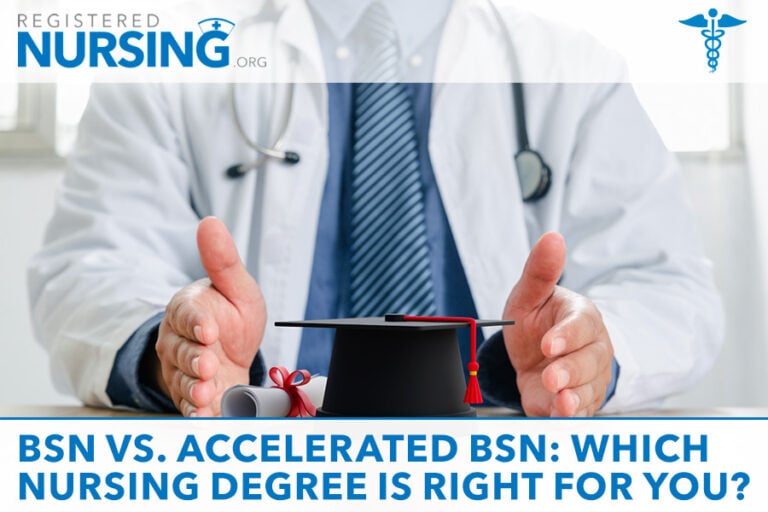Traditional BSN vs. Accelerated BSN: Which Nursing Degree is Right for You?

Choosing the right nursing degree is a critical decision that can shape your entire healthcare career. For aspiring nurses, two popular pathways stand out: the traditional Bachelor of Science in Nursing (BSN) and the Accelerated Bachelor of Science in Nursing (ABSN). While both lead to a rewarding career in nursing, they cater to different student backgrounds and career objectives.
Understanding the Basics: BSN and ABSN Defined
Traditional BSN Degree
A Bachelor of Science in Nursing (BSN) is a four-year undergraduate program designed for students who enter nursing directly from high school or have completed minimal college credits. This comprehensive program provides students with a holistic approach to nursing education, combining theoretical knowledge with practical clinical experience.
Every traditional BSN program offers a comprehensive approach to nursing education that goes beyond basic medical training. Students can expect:
- More gradual learning pace
- Opportunity for a broader college experience
- More time to explore nursing specialties
- Built-in academic support for younger students
- Lower initial financial investment
Already an RN looking to upskill? Consider an RN to BSN bridge program.
Accelerated BSN (ABSN) Degree
An Accelerated Bachelor of Science in Nursing (ABSN) is an intensive nursing program designed specifically for individuals who already hold a bachelor’s degree in a field other than nursing. These programs typically take 12 to 18 months to complete and offer a fast-track route to becoming a registered nurse.
The ABSN pathway is designed for career-changers and motivated professionals seeking a rapid entry into nursing. Key characteristics include:
- Faster path to a nursing career
- Leverages existing academic background
- More mature student cohort
- Intensive, focused curriculum
- Quicker return on educational investment
Comprehensive Comparison: BSN vs. ABSN
| Characteristic | Traditional BSN | Accelerated BSN (ABSN) |
| Program Length | 4 years | 12-18 months |
| Target Audience | High school graduates, first-time college students | College graduates with non-nursing degrees |
| Credit Requirements | 120-130 total credits | 60-70 total credits |
| Prerequisite Courses | High school diploma, basic science and math courses | Bachelor’s degree, specific science and prerequisite courses |
| Clinical Experience | Integrated throughout 4-year program | Intensive, compressed clinical rotations |
| Typical Student Age | 18-24 | 24-40 |
| Flexibility | Traditional campus-based learning | Often offers hybrid or online options |
| Cost | Lower per-semester cost | Higher per-semester cost, but shorter duration |
Challenges and Considerations
Potential Drawbacks of Traditional BSN
While offering a comprehensive education, the traditional BSN path comes with some challenges:
- Longer time to enter the nursing workforce
- Less focused curriculum
- Potentially less mature student environment
- Extended time commitment
- Broader, less specialized initial learning experience
Challenges of Accelerated BSN
The ABSN pathway, while attractive, presents its own set of potential obstacles:
- Higher intensity and compressed schedule
- More demanding academic environment
- Limited time for part-time work
- Higher upfront cost
- Less flexibility for students with family commitments
Choosing the Right Nursing Degree: Key Considerations
When to Choose a Traditional BSN
Your personal circumstances might make a traditional BSN the ideal choice if:
- You’re a recent high school graduate
- You prefer a more gradual learning experience
- You want a comprehensive college experience
- You have limited prior college credits
- You’re looking for a lower initial financial investment
- You want more time to explore nursing specialties
When to Choose an ABSN
The Accelerated BSN might be perfect for you if:
- You already have a bachelor’s degree
- You’re seeking a career change
- You want to enter nursing quickly
- You’re comfortable with an intense academic environment
- You have strong time management skills
- You’re motivated to complete the program rapidly
- You have prior academic experience in a related field
Financial Considerations
While Accelerated Bachelor’s of Science in Nursing programs often have higher per-semester costs, they can be more cost-effective in the long run due to their shorter duration. Traditional BSN programs spread costs over four years but require a longer time investment.
Admission Requirements
Traditional BSN Typical Requirements
- High school diploma or equivalent
- Competitive GPA (usually 2.5-3.0)
- Basic science and math coursework
- Standardized test scores
- Recommendation letters
ABSN Typical Requirements
- Accredited bachelor’s degree
- Minimum GPA (often 3.0 or higher)
- Specific prerequisite science courses
- Healthcare or volunteer experience
- Letters of recommendation
- Personal statement
Final Recommendations
Selecting between a BSN and ABSN depends on your circumstances, career goals, and personal background. Carefully evaluate your current education, financial situation, and professional objectives.
Regardless of the path you choose, both degrees will equip you with the knowledge and skills necessary to become a competent, compassionate nurse. Consider consulting with nursing program advisors, current students, and professionals in the field to make the most informed decision.
Pro Tip: Attend information sessions, tour campuses, and speak with admissions counselors to gain deeper insights into each program’s unique offerings and requirements.
Your nursing journey is a personal and transformative experience. Choose the educational path that aligns best with your professional aspirations and individual circumstances.
Latest Articles & Guides
One of the keys to success as a registered nurse is embracing lifelong learning. Our articles and guides address hot topics and current events in nursing, from education to career mobility and beyond. No matter where you are on your nursing journey, there’s an article to help you build your knowledge base.
Browse our latest articles, curated specifically for modern nurses.



